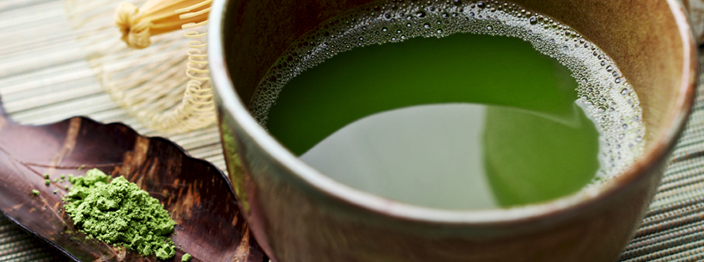Green Tea: is it effective for MS?
Green tea has been widely promoted for its possible health benefits and is now a common additive in foods and beverages. Indeed, it is now the fourth most common dietary supplement used in the U.S. (Sarma and colleagues. Drug Saf 2008;31:469-484).
But can it help someone with multiple sclerosis?
At present, no scientific studies have looked at the effects of green tea in people with MS. However, a number of studies have examined how green tea acts in the test tube and in animals. Much of this attention has focused on EGCG (epigallocatechin-3-gallate), one of the active ingredients in Chinese green tea.
A recent study published in the U.S. found that green tea reduced the development of demyelination in mice with EAE (experimental autoimmune encephalomyelitis), an animal model of MS (Wang and colleagues. Am J Pathol 2012;180:221-234; see also Wu and colleagues. Mol Aspects Med 2012;33:107-118). EGCG reduced the body’s production of inflammatory molecules (such as interferon-gamma and interleukin-17), decreased the numbers of inflammatory T cells (Th1 and Th17), and increased the number of regulatory T cells (Tregs). EGCG also reduced the infiltration of T cells into the central nervous system (brain and spinal cord).
A separate study at Oregon State University also found that EGCG increased the levels of Tregs, which are now being recognized as key players in immune function and critical to the suppression of autoimmunity (Wong and colleagues. Immunol Lett 2011;139:7-13).
Scientists in Germany have also reported that EGCG, when administered along with glatiramer acetate, appeared to protect neurons and reduced the development and severity of EAE in animals (Herges and colleagues. PLoS One 2011; 6:e25456).
These results are very promising. But it’s important to re-emphasize that no studies on the safety or effectiveness of green tea or EGCG supplements have been done in people with MS. And while green tea may seem very natural and benign, in the body it does act as a drug – so it needs to be viewed with the same sense of caution. EGCG supplements and green tea have been associated with a number of cases of liver damage in Canada and Europe (Yellapu and colleagues. Can J Gastroenterol 2011;25:157-160; Verhelst and colleagues. Acta Gastroenterol Belg 2009;72:262-264; Mazzanti and colleagues. Eur J Clin Pharmacol 2009;65:331-341). Liver damage has been reported after drinking as few as 4-6 cups per day of green tea (Rohde and colleagues. Ugeskr Laeger 2011;173:205-206).
In 2008, the U.S. Pharmacopeia, which sets the standards for prescription and non-prescription drugs in the U.S., reviewed 34 cases of liver damage related to green tea (Sarma 2008). Seven of these causes were judged to be probably caused by green tea, and 27 cases were possibly caused by it. They found that problems were more common if green tea was consumed on an empty stomach rather than after a meal. Their overall conclusion was that green tea extracts – if properly formulated – are not associated with significant safety issues. A caveat, however, is that the formulation of dietary supplements is largely unregulated and not subject to the same standards as prescription drugs. A more practical concern is that the best dose has not been determined.
The possible benefits and risks of green tea/EGCG won’t be known for many years. In the meantime, if you feel you would like to give green tea a try, you can take some measures to protect yourself. Don’t drink it on an empty stomach. Advise your doctor and pharmacist that you’ve started taking green tea, and have your liver function tested regularly (if it isn’t being tested already). A blood test will tell your doctor if liver toxicity is developing. This may be especially important if you are taking an MS medication that can cause damage to the liver.
Tell us about your experience and view latest results from others
Share this article
Facebook Twitter pin it! Email
Related Posts
Back





